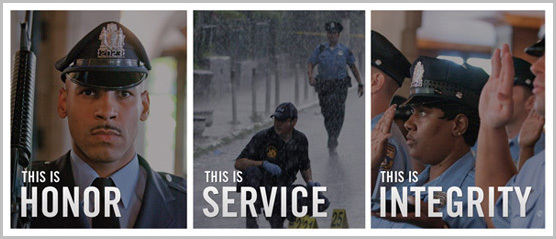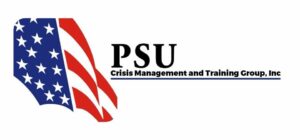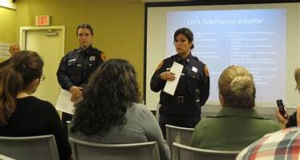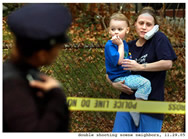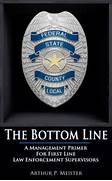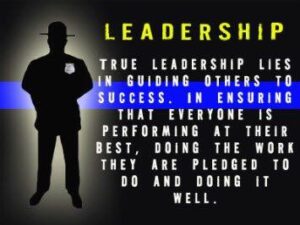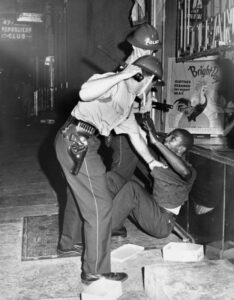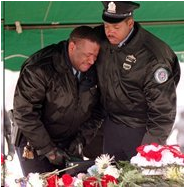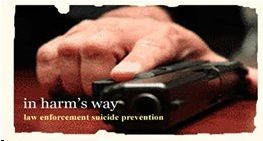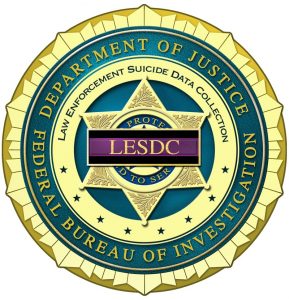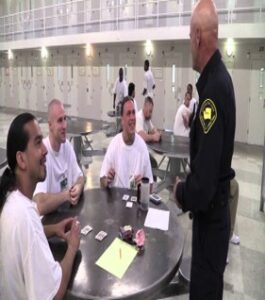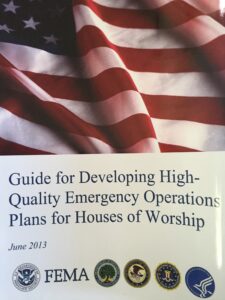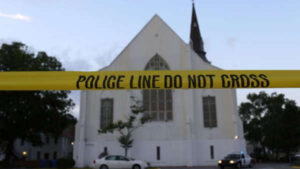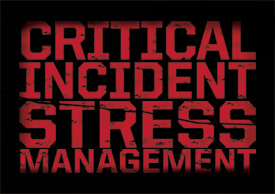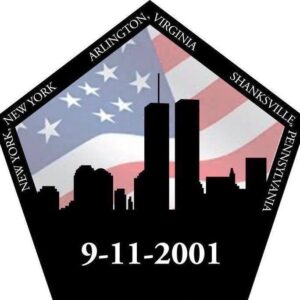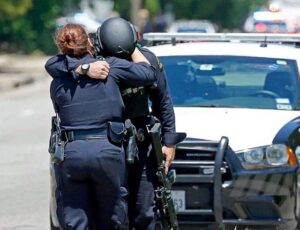Educational Training and Professional Development
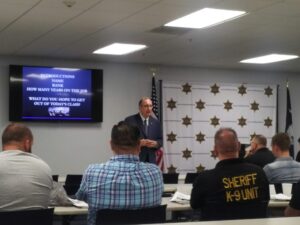
Relationships and Partnership Matter
P S U has a working relationships TRAINING FORCE USA to provide Agencies with Top Rated Education and Professional Development.
P S U Training and Professional Development Classes
What Students Are Saying….
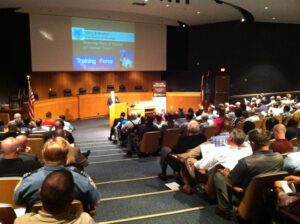
“This training was spot on and addressed much of what I was hoping for!”
Officer in St. Louis
“I definitely plan to incorporate a lot of this material in my new position.”
Newly Promoted Sgt. from Texas
“Great Class! Instructor was very knowledgeable and made the class very interesting.”
Officer in Central Florida
“The Instructor – Tom Gillan obviously cares about law enforcement and wants officers to be knowledgeable and safe.”
Officer in Texas
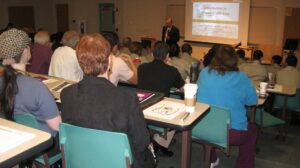
“Very good class…Thank you for what you do. It’s clear you care about what you’re presenting and the audience you are speaking to.”
Field Training Officer – South Carolina
“Tom is a top notch instructor who is very knowledgeable. I have attended his classes several times. I really enjoy his classes and his style of teaching.”
A 22 Year Veteran of Law Enforcement in South Carolina
“This class was one of the most realistic and informative classes I have attended. The instructor was great from explaining the information, answering questions and relating the subject to real life cases. I would personally recommend this class and instructor to all officers.”
Police Supervisor in Louisiana
Law Enforcement Agency Hosts Include:




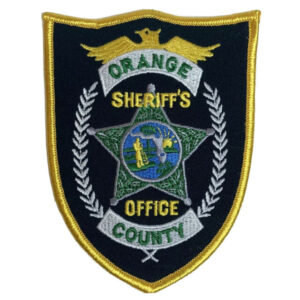
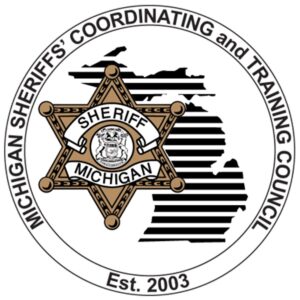
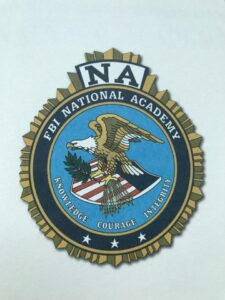
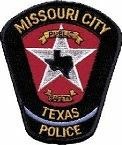


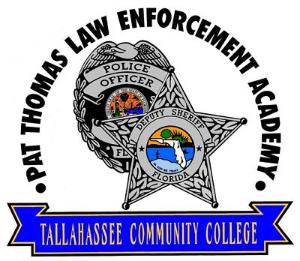







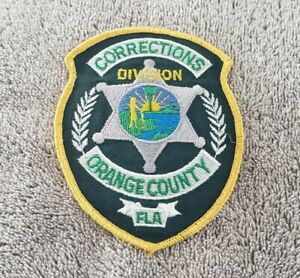

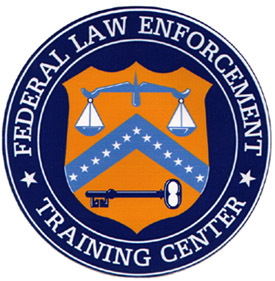

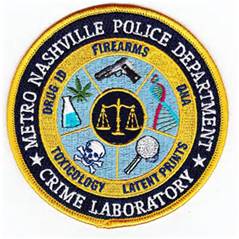
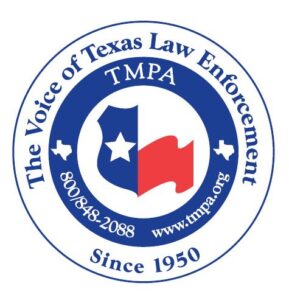








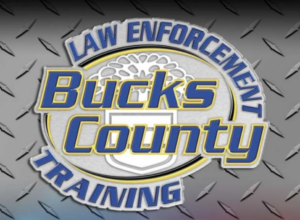




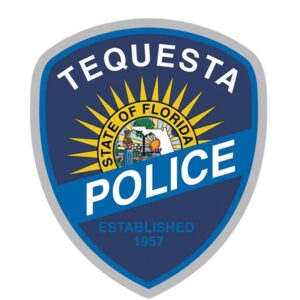

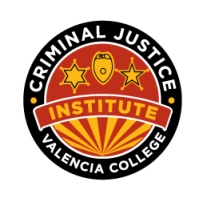



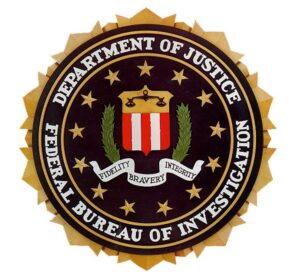
Below You Will Find A Sample of The Educational Training and Professional Development Classes We Offer:
Interpersonal and Communication Skills for Law Enforcement… A Comprehensive Guide To Communication – Effective Honest and Open Communication and Customer Service
Despite the fact that effective and honest communication is at the core of skills for law enforcement many officers receive a limited amount of specific training on this import topic. In many cases, officers resort to force when a few well chosen words and time may have addressed the issue at hand. Effective policing occurs when officers and members of the public partner to create safer communities. Unfortunately, many agencies do not concentrate on training and evaluating officers’ interpersonal skills for example: Active listening, problem solving, persuasion and conflict resolution and management. This One-Day Class is designed for law enforcement personnel and will equip officers with the knowledge and skills needed to effectively communicate while serving and protecting communities.
Building Leadership Competence and Coaching Tools and Skills for First Line Supervisors
About 20% of police officers advance their careers by testing for a promotional position. Most law enforcement officers take a promotional test and if they pass They are put on a list to be promoted. Most of these newly promoted supervisors receive little or no training for their new position. This class explores the law enforcement profession and the important role a first line supervisor must fill and how to avoid mistakes when faced with challenges. Coaching is the process of equipping people with tools, knowledge, and opportunities they need to develop themselves to become more effective. The key to successful leadership is influence not authority.
De-Escalation and Crisis Intervention Skills for Officer Safety
Today Law Enforcement Officers come in contact with people in crisis and suffering from mental health issues. This inter-active class will help students understand how stress and conflict can affect the thought process and your decision-making abilities. Topics will include the importance of building trust in the community, working with the homeless population, and returning veterans dealing with PTSD. Communication and Active Listening Skills can help avoid the use of force in many cases. This class promotes the importance of developing relationships between law enforcement, mental health professionals and the community.

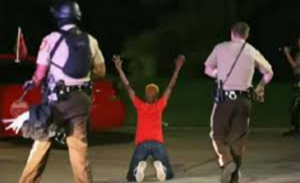
Cultural Competency for Law Enforcement… Serving With Honor and Integrity in the 21st Century
Law Enforcement has a history in dealing with and serving diverse communities. In our current culture, there’s a lot of conversation about diversity, equality, equity, inclusion, trust and respect. Cultural Competence is defined as “the ability of individuals and organizations to respond effectively and respectfully to all people in a manner that recognizes, affirms, values and preserves the dignity of each individual.” This One-Day Class provides a real look at the Nobility of Service and Policing in the 21st Century. Law Enforcement Agencies across the country are assessing and making appropriate changes to the way they provide services to diverse communities they serve. Smart Policing takes Responsibility, Dedication to Purpose, Accountability, Transparency, Personal Commitment and Effective Training. This ground-breaking class encourages law enforcement professionals to make changes in the way they serve and protect the diverse communities they serve.
Officer Ambush Awareness Skills…Lessons Learned
During the past few years there has been an emerging trend in felonious officer deaths as a result of ambush confrontations with individuals. Not every law enforcement encounter involves an officer involved shooting and no officer is totally immune to ambushes. Officers must train to be alert and sharpen their situational awareness skills on and off duty. With the increasing proportion of police murders being classified as ambushes, education must include skills developed from lesson learned in the field. Officers must be prepared for the unexpected.
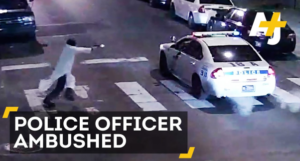
Psychological First Aid for Law Enforcement Wellness The Reality of the Law Enforcement Profession
The Facts are in and the costs are high…The class presents a first-hand look at the reality of the law enforcement profession. From stress to trauma…PTSD to officer suicide, “This job can kill you even if no one is shooting at you.”© Law Enforcement agencies across the country are recognizing the need to provide training programs and mental health services for officers. Education and programs such as peer support and critical incident stress management are the keys that can help reduce the long-term effects of stress and trauma. From the battle- lines to the home-front, officers will be encouraged by this class to develop a personal plan for resiliency and how to assist their co-workers when a crisis hits home.
In Harm’s Way: The Reality of Law Enforcement Profession
FACT: More law enforcement officers die by their own hand than in the line-of-duty! Suicide is the intentional taking of one’s life. Recent studies have revealed that a law enforcement officer takes their own life about every 40 hours somewhere in America. But despite this numbers, many agencies don’t have policies for awareness prevention, intervention programs or how to handle the aftermath of an officer suicide. The IN HARM’S WAY Class was developed in 2001. Today many law enforcement organizations and agencies are beginning to address the issue. We will review cases and what fellow officers can do if the suspect an officer is suicidal. Provide ideas and examples of successful programs that agencies have put in place to address officer suicide and how to deal with the aftermath.
Wearing The Badge Behind Bars: Addressing Correctional Officer Wellness, Stress, Trauma, PTSD, Suicide and Safety
One of the greatest threats to correctional officer wellness involves the stress and trauma they face as a result of their occupation. With the known dangers, low pay, long hours, stress, and trauma, it is becoming difficult to hire and retain officers. Inmates today are more violent and carry an “I don’t care attitude.” In providing the daily management of inmates and supervising offenders, officers face a wide array of stressors that, in many cases are unique to their profession. Stress can have significant negative consequences for correctional officers as it affects their health and well-being, work performance, and their personal life. According to research, these consequences can decrease the safety of a correctional environment, create a liability for the agency, cause a high turnover of staff, create poor performance, law suits and reduces the legitimacy of an organization in the eyes of the employees and those they supervise.
STALLING FOR TIME…Crisis/Hostage Negotiations Skills for the First Officers on the Scene
This One-Day Class is designed for law enforcement patrol officers, correctional officers, and security personnel to acquaint them with the basic tenets of Crisis / Hostage Negotiation Skills. A crisis situation can unfold very quickly when a patrol officer arrives on the scene. It may be necessary for the responding officer to communicate with the person in crisis. This can ‘buy or stall for time” until the Crisis/Hostage Negotiation Team arrives and gets into place. These skills are not taught in the academy or during in-service training. In today’s stressful world, these skills can be used by the officer who finds themselves in an escalating crisis situation which demands immediate assessment and response. Any situation can trigger a crisis in someone’s life. From a divorce and child custody battle to a possible workplace violence issue. Added to the mix, are traumatized military personnel returning home from the war zone and people struggling with mental illness. Recently there have been cases that hit too close to home such as negotiating with a fellow officer. By determining and conducting an appropriate response to situations involving people in crisis, the student will gain the knowledge and hands-on skills needed to act tactically, logically, and compassionately working towards a successful outcome.
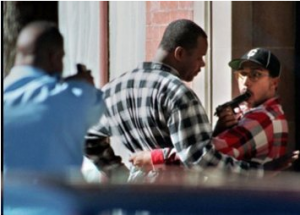
Photo by Jim MacMillan
A Sensible and Comprehensive Response to Safety and Security for Places of Worship
Shortly after the Mother Emmanuel AME Church shooting in Charleston, South Carolina, we were called by the Charleston County Sheriff’s Office to develop a class for Places of Worship, Faith-Based Communities and Law Enforcement Personnel. Since that call, we have provided over 300 training classes nationwide. Safety and Security for Places of Worship is NOT ONLY about Violent Threats and Active Shooters…It’s much bigger than that. Places of Worship today must be prepared for a variety of threats and crisis situations, such as medical emergencies, domestic violence, child care protection, sexual abuse, disruptive visitors, and preparing for a safe mission trip, just to name a few. During this One-Day Class, participants will gain a better understanding of the need for church and ministry safety and security. Students will learn about safety in the workplace, schools, day-care centers, and places of worship. They will learn about the importance of developing a safety and security plan and child protection policy for their organization. It is all about Prevention, Protection, Mitigation, Response, and Recovery. This class is a great way to engage with the community.
Crisis Management For Places of Worship Preparing for the Unimaginable Developing an Emergency Operations Plan, Child Protection Policy and Safety and Security Ministry Team
This One-Day Class is broken into two parts:
The Morning Session focuses on the Development of the Emergency Operations Plan and the Policy and Procedures for Safety and Security.
The Afternoon Session focuses on the development, recruitment and training of a Safety and Security Ministry Team.
Keeping Children Safe In An Uncertain World… Child Protection, Safety and Abuse Prevention
A Four Hour Class In-Person or On-Line
In today’s world, the ability to keep children safe from sex offenders has become one of the top priorities for risk management professionals. The personal accounts of child abuse are heartbreaking and the numbers of sexual crimes committed against children are staggering. Research continues to suggest that one in five children will be sexually abused during childhood and that most sex offenders commit dozens of crimes before they are caught and prosecuted. This class was designed for teachers, day-care workers, school counselors, Faith Leaders, Children Ministry Workers, Youth Pastors, Sports Coaches, Library Personnel, Law Enforcement, and anyone responsible for providing activities and services for children and youth.

Violence In The Workplace…Awareness, Prevention and the Aftermath
According to OSHA, some 2 million American workers are victims of workplace violence each year. Violence in the workplace can strike anywhere, at any time and no one is immune. From an elementary school to the college campus. From the office boardroom to the warehouse. From the mall to a government building. Every business entity must look at assessments, prevention, intervention, protection protocols, a zero-tolerance policy and a plan to cope with the aftermath…It’s all about being prepared.
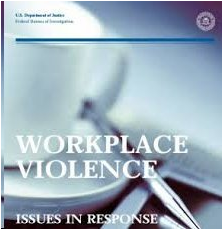
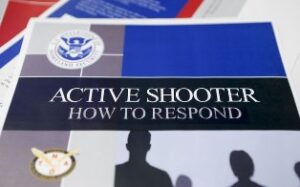
The Realities of Human Trafficking in Your Communities An Introduction to Modern Day Slavery
Human Trafficking is a form of modern-day slavery and a crime against humanity. From force labor and domestic servitude to sex trafficking, victims are being forced to work for very little or no-pay and American youth are being forced into prostitution making Human Trafficking a very lucrative business and is the second largest criminal industry in the world. This One-Day Class is designed for Law Enforcement Personnel, including Patrol Officers, Detectives, School Resource Officers, Victim Advocates and NGOs – Social Service Providers. The primary focus of this class is to provide a clearer understanding of the origins, method of operations and indicators associated with all forms of Human Trafficking. This class will acquaint students with the importance of a victim-centered approach to the investigation, rescue of victims and the importance of a collaborative effort between law enforcement, social service providers and the criminal justice system to ensure a successful prosecution.

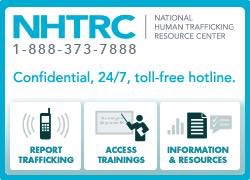
Half-Day / Four-Hour Classes
911 Operator/Dispatcher Wellness – Addressing Stress, Trauma, PTSD, and Resiliency So You Don’t Come Unplugged ©
911 Operators/ Dispatchers perform a complex and stressful function. Operator/Dispatchers must be able to handle incoming calls dispatch officers, transfer calls to appropriate agencies, coordinate multiple units, and record computer requests for field units. They must provide immediate emergency care instructions to panicked, distressed and highly emotional callers and remain calm and reassuring. The stress and trauma associated with this job can be overwhelming. This Four Hour / Half-Day class offers strategies and solutions to cope with stress and trauma. They will be provided the tools and skills needed to develop a personal plan for resiliency.
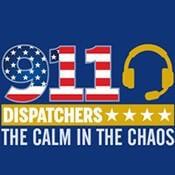
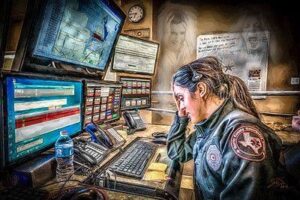
Haunted By Their Work – Crime Scene Investigators, Victim Advocates, Judges, Prosecutors, Defense Attorneys, Court Staff and Jurors May Experience Secondary Trauma and Compassion Fatigue
Research has showed that it is what we see, hear and smell that affects the mind of a person who witnesses a critical incidents or horrific crime scenes. These individuals may face vicarious traumatization, which is caused by becoming so connected to a case that they experience symptoms similar to PTSD. The individuals mentioned face horrific crime scenes, review pictures and videos, and develop secondary trauma listening to the testimony of crime victims. This Four Hour / Half-Day class will provide a better understanding of these symptoms and reactions both physical and emotional that may cause sleepless nights, flashbacks, and physical exhaustion that can have long-term effects on the individual. Participants will be encouraged to seek assistance in coping with the stress and trauma associated with these lines of work.
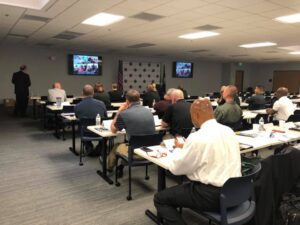

Death Notification: Delivering The Message with Compassion and Empathy The Correct Way
A Four-Hour / Half-Day In-Person or On-Line Class
Law Enforcement officer often have to deliver the tragic news of an auto accident involving death and sometimes they have to report to a family that an officer has been killed in the line of duty. Research has found that 68 percent of officers admitted that death notifications were very stressful. The shock, denial and other intense emotions family members and friends experience when receiving a death notification can test even veteran officers. Officers who are called to be the bearer of bad news can benefit from special training to help those delivering and receiving this heart-breaking news. This Four-Hour/Half-Day training offers students a step-by-step procedure of making a death notification the right way and what to expect after the notification in dealing with those who are grieving.
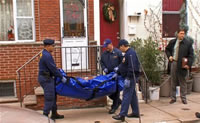
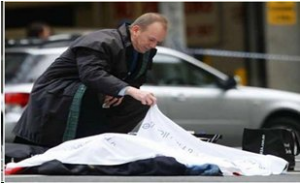
I Love A Cop: What Every Family Needs To Know About The Law Enforcement Profession
This class is based on the book – I Love A Cop – What Every Family Needs To Know by Ellen Kirschman, Ph.D. It is for family members – spouses, significant others, partners and parents of law enforcement personnel. We talk about the myths and realities of police work and the everyday challenges facing law enforcement officers and their families throughout their career. Law Enforcement agencies are encouraged to provide family members with real information about the profession. As part of family orientation, this class is a great way to acknowledge how much the job will spill over into their private lives. In today’s environment, we must not only support the officer but we must provide support for the family.
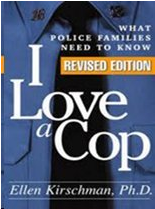
Reporting The News…Dying To Get The Story Covering The Story, Safety Planning, and Recovering from Trauma
Like First Responders armed only with a notebook and camera, News Reporters and Journalists in many cases, race to the scene without contemplating the danger and long-term effects they face. News Reporters, Photojournalists, Editors and News Room Personnel are involved in the reporting of tragic news stories on a regular basis. Reporting stories involving violence and mass tragedies can create serious challenges for reporters, journalists and news room personnel. Most field reporters and journalists are not prepared to deal with the aftermath of covering tragic stories. It may be days, weeks or months after the story airs, the reporter /journalist can develop intrusive thoughts, dreams, and flashbacks. A new assignment story can trigger memories of the earlier story and produce mental, emotional and physical reactions to surface and can lead to symptoms of Post Traumatic Stress Disorder. This Four-Hour/Half-Day class is all about managing the risks.

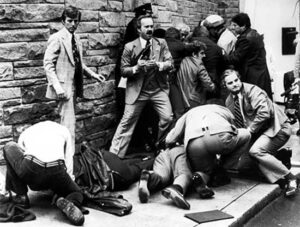
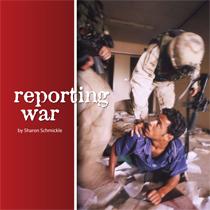
Two-Day Classes
Preparing for the Unimaginable: Basic Critical Incident Stress Debriefing and Acute Stress Management – The FBI Model
Critical Incident Stress Debriefing and Acute Traumatic Stress Management is a set of crisis intervention skills that are strategically woven together to mitigate the impact of a traumatic event. It helps facilitate the recovery process in normal people, who are having a normal to a traumatic event. This two-day class utilizes a combination of the Mitchell Model, the Acute Traumatic Stress Management Model and the FBI Model and is designed to teach students and support personnel how to accurately assess and effectively intervene with individuals and groups experiencing critical incident stress and trauma. At the end of the educational portion of the class, students will participate in role playing exercises and will take a written test at the completion of the class.
Basic Peer Support Skills and Crisis Management for Law Enforcement
A Stress Management Program and Peer Support offers assistance and appropriate support resources to employees when personal and/or professional problems negatively affect a person, their work performance or their family life. The assistance must be confidential for the employee by providing emotional support during and after times of personal and/or professional crisis. It must promote trust and allow appropriate anonymity. Trained team members can identify symptoms of stress and personal conflict and provide guidance and/or referral to a professional resource. This two-day class will provide participants with the skills and tools to respond to a personal and professional crisis. The class includes an educational component along with role play exercises and a written test at the completion of the class.
